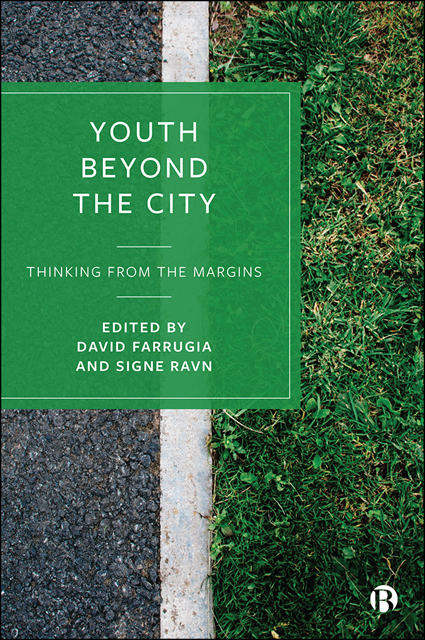Book contents
- Frontmatter
- Contents
- List of Figures and Tables
- Notes on Contributors
- Introduction: Thinking from the Margins
- Part I Inequalities: Education and Aspiration on the Margins
- Part II Materialities: Spatiality and Sensory Embodiment
- Part III Identities: Mobility, Rootedness and Belonging
- Part IV Temporalities: Historicizing Space and Place
- Index
2 - Disrupting the Discourse of Under-representation: The Place of Rural Students in Australian Higher Education Equity Policy
Published online by Cambridge University Press: 13 October 2022
- Frontmatter
- Contents
- List of Figures and Tables
- Notes on Contributors
- Introduction: Thinking from the Margins
- Part I Inequalities: Education and Aspiration on the Margins
- Part II Materialities: Spatiality and Sensory Embodiment
- Part III Identities: Mobility, Rootedness and Belonging
- Part IV Temporalities: Historicizing Space and Place
- Index
Summary
Introduction
Australians living in regional and remote areas have been designated as a key higher education equity target group for more than 30 years. Yet despite ongoing efforts to seek parity and alter ‘the balance of the student population to reflect more closely the composition of society as a whole’ (Department of Employment, Education and Training, 1990, p 2), very little has changed. Given historically low rates of university participation for rural students and stagnant enrolment patterns even since the massification of higher education (Burnheim and Harvey, 2016), there is no question that Australians from regional and remote areas remain under-represented.
Indeed, rural Australians have been characterized as particularly difficult subjects of the government's equity agenda. As a result, it is commonplace for policy-makers and scholars to refer to the challenge of improving university access as an intractable problem. A major review of Australian higher education in 2008, for example, targets three groups most underrepresented in higher education – rural Australians, Indigenous Australians and people from low socioeconomic backgrounds – yet declares there is no easy or obvious solution to resolve this ‘challenge’ (Bradley et al, 2008, p 27). Elsewhere, regionality has been labelled the ‘hardest’ equity challenge to confront (Burnheim and Harvey, 2016), singling out regional and remote Australians as an especially intransigent equity group relative to all other targets of higher education policy.
This persistent under-representation is usually attributed to lower school completion rates, lower academic achievement and poorer employment options than their metropolitan peers (Burnheim and Harvey, 2016; Halsey, 2017). In this chapter, we adopt a different stance by interrogating the discourse of ‘under-representation’ itself. While ensuring better access to university is a key social justice concern, ‘under-representation’ is also tied to broader political and economic concerns that are often overlooked. Widening the participation of under-represented groups is a strategy for expansion (Sellar and Gale, 2011), with continued growth of the higher education sector heavily dependent on diversifying the student body. Relatedly, ‘under-representation’, as a marker of collective disadvantage in equity policy, positions certain kinds of youth against normative, idealized student subjectivities (Burke, 2012). Consequently, rural and remote Australians are largely seen as different and ‘Other’ in relation to higher education, shaped through the lens of the traditional metropolitan university student.
- Type
- Chapter
- Information
- Youth beyond the CityThinking from the Margins, pp. 40 - 56Publisher: Bristol University PressPrint publication year: 2022



